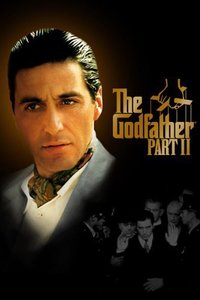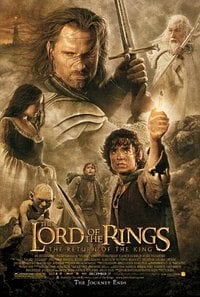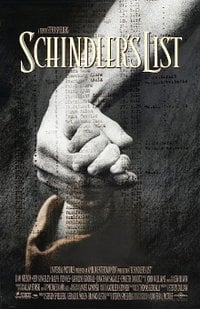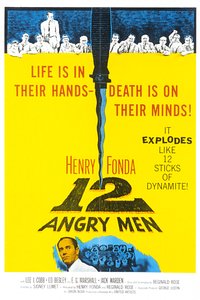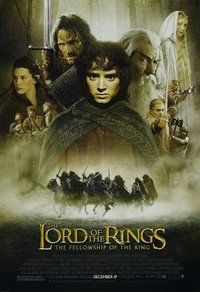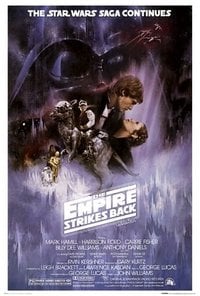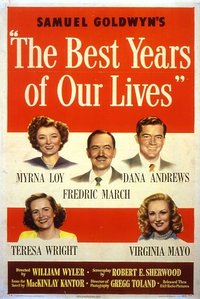
The Best Years of Our Lives Quotes
Three WWII veterans return home to small-town America to discover that they and their families have been irreparably changed.
[after Peggy tells her parents that they never had any trouble in their relationship]
Milly Stephenson: "We never had any trouble." How many times have I told you I hated you and believed it in my heart? How many times have you said you were sick and tired of me; that we were all washed up? How many times have we had to fall in love all over again?
Milly Stephenson: "We never had any trouble." How many times have I told you I hated you and believed it in my heart? How many times have you said you were sick and tired of me; that we were all washed up? How many times have we had to fall in love all over again?
[Al is speaking to the banquet]
Al Stephenson: I'm glad to see you've all pulled through so well. As Mr. Milton so perfectly expressed it: our country stands today... where it stands today... wherever that is. I'm sure you'll all agree with me if I said that now is the time for all of us to stop all this nonsense, face facts, get down to brass tacks, forget about the war and go fishing. But I'm not gonna say it. I'm just going to sum the whole thing up in one word.
[Milly coughs loudly to caution him - worrying that he will tell off the boss]
Al Stephenson: My wife doesn't think I'd better sum it up in that one word. I want to tell you all that the reason for my success as a Sergeant is due primarily to my previous training in the Cornbelt Loan and Trust Company. The knowledge I acquired in the good ol' bank I applied to my problems in the infantry. For instance, one day in Okinawa, a Major comes up to me and he says, "Stephenson, you see that hill?" "Yes sir, I see it." "All right," he said. "You and your platoon will attack said hill and take it." So I said to the Major, "but that operation involves considerable risk. We haven't sufficient collateral." "I'm aware of that," said the Major, "but the fact remains that there's the hill and you are the guys who are going to take it." So I said to him, "I'm sorry, Major... no collateral, no hill." So we didn't take the hill and we lost the war. I think that little story has considerable significance, but I've forgotten what it is. And now in conclusion, I'd like to tell you a humorous anecdote. I know several humorous anecdotes, but I can't think of any way to clean them up, so I'll only say this much. I love the Cornbelt Loan and Trust Company. There are some who say that the old bank is suffering from hardening of the arteries and of the heart. I refuse to listen to such radical talk. I say that our bank is alive, it's generous, it's human, and we're going to have such a line of customers seeking and GETTING small loans that people will think we're gambling with the depositors' money. And we will be. We will be gambling on the future of this country. I thank you.
Al Stephenson: I'm glad to see you've all pulled through so well. As Mr. Milton so perfectly expressed it: our country stands today... where it stands today... wherever that is. I'm sure you'll all agree with me if I said that now is the time for all of us to stop all this nonsense, face facts, get down to brass tacks, forget about the war and go fishing. But I'm not gonna say it. I'm just going to sum the whole thing up in one word.
[Milly coughs loudly to caution him - worrying that he will tell off the boss]
Al Stephenson: My wife doesn't think I'd better sum it up in that one word. I want to tell you all that the reason for my success as a Sergeant is due primarily to my previous training in the Cornbelt Loan and Trust Company. The knowledge I acquired in the good ol' bank I applied to my problems in the infantry. For instance, one day in Okinawa, a Major comes up to me and he says, "Stephenson, you see that hill?" "Yes sir, I see it." "All right," he said. "You and your platoon will attack said hill and take it." So I said to the Major, "but that operation involves considerable risk. We haven't sufficient collateral." "I'm aware of that," said the Major, "but the fact remains that there's the hill and you are the guys who are going to take it." So I said to him, "I'm sorry, Major... no collateral, no hill." So we didn't take the hill and we lost the war. I think that little story has considerable significance, but I've forgotten what it is. And now in conclusion, I'd like to tell you a humorous anecdote. I know several humorous anecdotes, but I can't think of any way to clean them up, so I'll only say this much. I love the Cornbelt Loan and Trust Company. There are some who say that the old bank is suffering from hardening of the arteries and of the heart. I refuse to listen to such radical talk. I say that our bank is alive, it's generous, it's human, and we're going to have such a line of customers seeking and GETTING small loans that people will think we're gambling with the depositors' money. And we will be. We will be gambling on the future of this country. I thank you.
Wilma Cameron: You wrote me that when you got home, you and I were going to be married. If you wrote that once, you wrote it a hundred times. Isn't that true?
Homer Parrish: Yes, but things are different now.
Wilma Cameron: Have you changed your mind?
Homer Parrish: Have I said anything about changing my mind?
Wilma Cameron: No. That's just it. You haven't said anything about anything... I don't know what to think, Homer. All I know is, I was in love with you when you left and I'm in love with you now. Other things may have changed but that hasn't.
Homer Parrish: Yes, but things are different now.
Wilma Cameron: Have you changed your mind?
Homer Parrish: Have I said anything about changing my mind?
Wilma Cameron: No. That's just it. You haven't said anything about anything... I don't know what to think, Homer. All I know is, I was in love with you when you left and I'm in love with you now. Other things may have changed but that hasn't.
[Al is explaining to the bank president why he made the loan to Mr. Novak]
Al Stephenson: You see, Mr. Milton, in the Army I've had to be with men when they were stripped of everything in the way of property except what they carried around with them and inside them. I saw them being tested. Now some of them stood up to it and some didn't. But you got so you could tell which ones you could count on. I tell you this man Novak is okay. His 'collateral' is in his hands, in his heart and his guts. It's in his right as a citizen.
Al Stephenson: You see, Mr. Milton, in the Army I've had to be with men when they were stripped of everything in the way of property except what they carried around with them and inside them. I saw them being tested. Now some of them stood up to it and some didn't. But you got so you could tell which ones you could count on. I tell you this man Novak is okay. His 'collateral' is in his hands, in his heart and his guts. It's in his right as a citizen.
Wilma Cameron: Tell me the truth, Homer. Do you want me to forget about you?
Homer Parrish: I want you to be free, Wilma, to live your own life. I don't want you tied down forever just because you've got a kind heart.
Wilma Cameron: Oh, Homer! Why can't you ever understand the way things really are, the way I really feel? I keep trying to tell you.
Homer Parrish: But, but you don't know, Wilma. You don't know what it'd be like to have to live with me. To have to face this
[his hooks]
Homer Parrish: every day, every night.
Wilma Cameron: But I can only find out by trying. And if it turns out I haven't courage enough, we'll soon know it.
Homer Parrish: I want you to be free, Wilma, to live your own life. I don't want you tied down forever just because you've got a kind heart.
Wilma Cameron: Oh, Homer! Why can't you ever understand the way things really are, the way I really feel? I keep trying to tell you.
Homer Parrish: But, but you don't know, Wilma. You don't know what it'd be like to have to live with me. To have to face this
[his hooks]
Homer Parrish: every day, every night.
Wilma Cameron: But I can only find out by trying. And if it turns out I haven't courage enough, we'll soon know it.
[Homer has asked Wilma into his bedroom to see what happens as he prepares for bed. After removing his hooks and harness, he 'wiggles' into his pajama top]
Homer Parrish: I'm lucky. I have my elbows. Some of the boys don't. But I can't button them up.
Wilma Cameron: I'll do that, Homer.
Homer Parrish: This is when I know I'm helpless. My hands are down there on the bed. I can't put them on again without calling to somebody for help. I can't smoke a cigarette or read a book. If that door should blow shut, I can't open it and get out of this room. I'm as dependent as a baby that doesn't know how to get anything except to cry for it. Well, now you know, Wilma. Now you have an idea of what it is. I guess you don't know what to say. It's all right. Go on home. Go away like your family said.
Wilma Cameron: [She kneels in front of him] I know what to say, Homer. I love you and I'm never going to leave you... never.
[She kisses him]
Homer Parrish: I'm lucky. I have my elbows. Some of the boys don't. But I can't button them up.
Wilma Cameron: I'll do that, Homer.
Homer Parrish: This is when I know I'm helpless. My hands are down there on the bed. I can't put them on again without calling to somebody for help. I can't smoke a cigarette or read a book. If that door should blow shut, I can't open it and get out of this room. I'm as dependent as a baby that doesn't know how to get anything except to cry for it. Well, now you know, Wilma. Now you have an idea of what it is. I guess you don't know what to say. It's all right. Go on home. Go away like your family said.
Wilma Cameron: [She kneels in front of him] I know what to say, Homer. I love you and I'm never going to leave you... never.
[She kisses him]
Homer Parrish: I didn't see much of the war... I was stationed in a repair shop below decks. Oh, I was in plenty of battles, but I never saw a Jap or heard a shell coming at me. When we were sunk, all I know is there was a lot of fire and explosions. And I was ordered topsides and overboard. And I was burned. When I came to, I was on a cruiser. My hands were off. After that, I had it easy... That's what I said. They took care of me fine. They trained me to use these things. I can dial telephones, I can drive a car, I can even put nickels in the jukebox. I'm all right, but... well, you see, I've got a girl.
Peggy Stephenson: Well, what have you been doing with yourself lately?
Fred Derry: Working.
Peggy Stephenson: Yes, Dad told me he heard you were in some kind of building work.
Fred Derry: Well, that's a hopeful way of putting it. I'm really in the junk business - an occupation for which many people feel I'm well-qualified by temperament and training.
Fred Derry: Working.
Peggy Stephenson: Yes, Dad told me he heard you were in some kind of building work.
Fred Derry: Well, that's a hopeful way of putting it. I'm really in the junk business - an occupation for which many people feel I'm well-qualified by temperament and training.
Marie Derry: What do you think I was doing all those years?
Fred Derry: I don't know, babe, but I can guess.
Marie Derry: Go ahead. Guess your head off. I could do some guessing myself. What were you up to in London and Paris and all those places? I've given you every chance to make something of yourself. I gave up my own job when you asked me. I gave up the best years of my life, and what have you done? You flopped! Couldn't even hold that job at the drugstore. So I'm going back to work for myself and that means I'm gonna live for myself too. And in case you don't understand English, I'm gonna get a divorce. What have you got to say to that?
Fred Derry: Don't keep Cliff waiting.
Fred Derry: I don't know, babe, but I can guess.
Marie Derry: Go ahead. Guess your head off. I could do some guessing myself. What were you up to in London and Paris and all those places? I've given you every chance to make something of yourself. I gave up my own job when you asked me. I gave up the best years of my life, and what have you done? You flopped! Couldn't even hold that job at the drugstore. So I'm going back to work for myself and that means I'm gonna live for myself too. And in case you don't understand English, I'm gonna get a divorce. What have you got to say to that?
Fred Derry: Don't keep Cliff waiting.
Peggy Stephenson: I've made up my mind.
Al Stephenson: Good girl.
Milly Stephenson: To do what?
Peggy Stephenson: I'm going to break that marriage up! I can't stand it seeing Fred tied to a woman he doesn't love and who doesn't love him. Oh, it's horrible for him. It's humiliating and it's killing his spirit. Somebody's got to help him.
Al Stephenson: Good girl.
Milly Stephenson: To do what?
Peggy Stephenson: I'm going to break that marriage up! I can't stand it seeing Fred tied to a woman he doesn't love and who doesn't love him. Oh, it's horrible for him. It's humiliating and it's killing his spirit. Somebody's got to help him.
Fred Derry: I dreamed I was gonna have my own home. Just a nice little house for my wife and me out in the country... in the suburbs anyway. That's the cock-eyed kind of dream you have when you're overseas.
Peggy Stephenson: You don't have to be overseas to have dreams like that.
Fred Derry: Yeah. You can get crazy ideas right here at home.
Peggy Stephenson: You don't have to be overseas to have dreams like that.
Fred Derry: Yeah. You can get crazy ideas right here at home.
Mr. Mollett: Say, uh, do you mind if I ask you a personal question?
Homer Parrish: I know what it is. How did I get these hooks and how do they work? That's what everybody says when they start off, "Do you mind if I ask you a personal question?" Well, I'll tell ya. I got sick and tired of that old pair of hands I had. You know, an awful lot of trouble washing them and manicuring my nails. So I traded them in for a pair of these latest models. They work by radar. Look.
[He takes a scoop of his ice cream sundae with a spoon]
Homer Parrish: Pretty cute, hey?
Homer Parrish: I know what it is. How did I get these hooks and how do they work? That's what everybody says when they start off, "Do you mind if I ask you a personal question?" Well, I'll tell ya. I got sick and tired of that old pair of hands I had. You know, an awful lot of trouble washing them and manicuring my nails. So I traded them in for a pair of these latest models. They work by radar. Look.
[He takes a scoop of his ice cream sundae with a spoon]
Homer Parrish: Pretty cute, hey?


